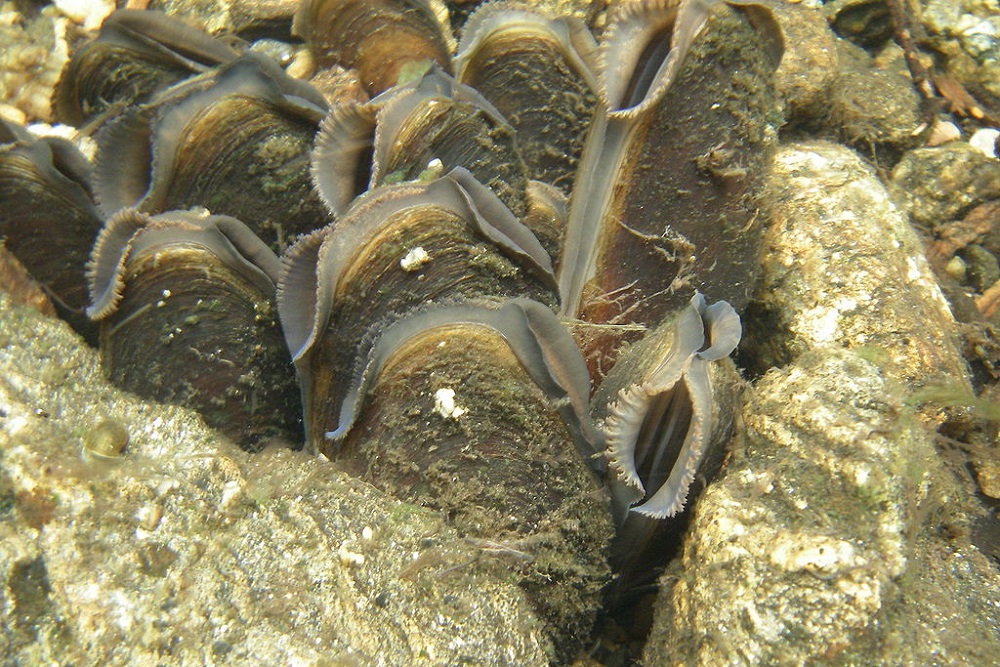New hatchery aims to reverse the decline of endangered freshwater pearl mussel in Wales

Construction has got underway on a new freshwater pearl mussel rearing facility at Cynrig Hatchery near Brecon.
Managed by National Resources Wales, the hatchery delivers several captive breeding programmes for critically endangered aquatic animals.
These include salmon, Arctic char, trout, freshwater pearl mussels, white-clawed Crayfish, water voles and European eel.
The Hatchery is one of only two currently in existence in Wales and one of only two specialist freshwater pearl mussel hatcheries in the UK (the other is in Cumbria).
Freshwater pearl mussel populations are critically endangered in Wales and are struggling due to habitat loss and dwindling fish stocks.
Their complex lifecycle includes a parasitic phase where pearl mussel glochidia attach to the gills of salmon or trout. Healthy populations of salmon or trout are therefore critical for their early life stages.
As juveniles they spend 10 years buried in river gravels and the adults can live for more than 100 years, growing up to six inches long. They need rivers with clean, well-oxygenated water and stable gravels.
Construction work to upgrade the facility is being funded by the five-year EU LIFE funded Four Rivers for LIFE Project run by Natural Resources Wales.
Additional financial support is also provided by Welsh Government and Dŵr Cymru Welsh Water.
The work will see a new agricultural-type barn construction erected on the site to provide additional space for rearing freshwater pearl mussels and fish.
Dramatic decline
Dr John Taylor, NRW’s fisheries and aquaculture technical specialist said: “We are working hard to reverse the dramatic decline of this species. Having purpose-built facilities will allow us to optimise the technical aspects of the rearing process for the benefit of these rare and important species.”
In 2018 the hatchery’s breeding programme was successful in breeding freshwater pearl mussels beyond six months of age for the first time.
This achievement was due to a new box rearing technique, pioneered by workers in Czech Republic, using sediment and algae for the first 8-10 months of the juvenile mussels’ life.
Susie Kinghan, Team Leader for the Four Rivers for LIFE Project said: “Upgrading the facilities will be a natural continuation to the pioneering work currently taking place at Cynrig. This will also support our Project’s work to see larger populations of this ancient and elusive mollusc revived in Welsh rivers.”
Construction work will start on Tuesday 24 January and will complete at the end of March 2023.
To keep up to date with the project you can follow Four Rivers for Life on Facebook and Twitter or visit the project website here…….
Support our Nation today
For the price of a cup of coffee a month you can help us create an independent, not-for-profit, national news service for the people of Wales, by the people of Wales.





